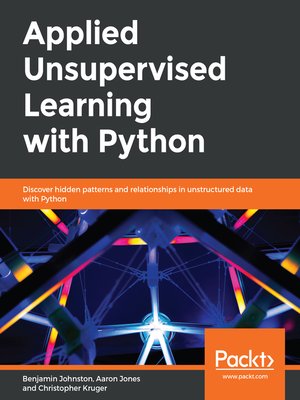Applied Unsupervised Learning with Python
ebook ∣ Discover hidden patterns and relationships in unstructured data with Python
By Benjamin Johnston

Sign up to save your library
With an OverDrive account, you can save your favorite libraries for at-a-glance information about availability. Find out more about OverDrive accounts.
Find this title in Libby, the library reading app by OverDrive.



Search for a digital library with this title
Title found at these libraries:
| Library Name | Distance |
|---|---|
| Loading... |
Design clever algorithms that can uncover interesting structures and hidden relationships in unstructured, unlabeled data
Key FeaturesUnsupervised learning is a useful and practical solution in situations where labeled data is not available.
Applied Unsupervised Learning with Python guides you on the best practices for using unsupervised learning techniques in tandem with Python libraries and extracting meaningful information from unstructured data. The course begins by explaining how basic clustering works to find similar data points in a set. Once you are well versed with the k-means algorithm and how it operates, you'll learn what dimensionality reduction is and where to apply it. As you progress, you'll learn various neural network techniques and how they can improve your model. While studying the applications of unsupervised learning, you will also understand how to mine topics that are trending on Twitter and Facebook and build a news recommendation engine for users. You will complete the course by challenging yourself through various interesting activities such as performing a Market Basket Analysis and identifying relationships between different merchandises.
By the end of this course, you will have the skills you need to confidently build your own models using Python.
What you will learnThis course is designed for developers, data scientists, and machine learning enthusiasts who are interested in unsupervised learning. Some familiarity with Python programming along with basic knowledge of mathematical concepts including exponents, square roots, means, and medians will be beneficial.







